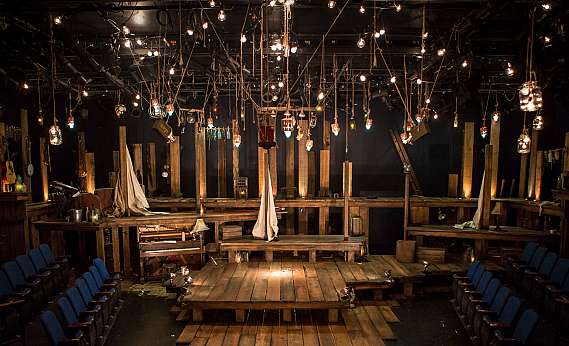Get the post-show conversation going with these Discussion Questions for Eurydice.

Playwright Sarah Ruhl created these ten discussion questions when writing an afterword for a new published edition of Eurydice.
- Who have you lost and what would you say to them if you suddenly found you could have more conversations with them?
- Who would win in a battle between language and music, and does there need to be a battle?
- What is your vision of the afterlife?
- When you lost the person you loved, did it make a sound? Was it sudden? Seen or unseen? Over a long period of time, or in a single moment?
- Could you freely give a person you love to another person’s love, if you could not be with them?
- What memories would you keep if you could hide some inside of rain?
- Who or what would be your own personal Hades?
- How can we show improvised care for someone we love, even if all we have on earth is a ball of string?
- How can we mourn in the theatre, and what is the proper place for ghosts?
- Are we our memories, or something else?
And here are a few more questions to consider:
- Most retellings of the Orpheus and Eurydice myth focus on Orpheus, whereas Sarah Ruhl’s version centers Eurydice instead. What did this change of focus allow for creatively? What did you connect with that might not have been included in a telling with a different focus?
- Sarah Ruhl has said that the key to staging her play Eurydice is figuring out how to present the Stones. Why are the Stones so important? What role do they play in acquainting Eurydice and the audience with the Underworld?
- The play started being written in the 1990s, and director Braden Abraham chose to use that era as a design inspiration for Orpheus and Eurydice. In what ways did you see the ‘90s represented in the production? What other time periods did you see influencing the design of some characters?
- Orpheus, Eurydice, and Eurydice’s father use writing (music and letters) to connect with the people they lost. Sarah Ruhl wrote Eurydice after losing her father to cancer. What role can words play in the grieving process? Can you think of other examples of the creative act used as a form of mourning?


No comments yet.